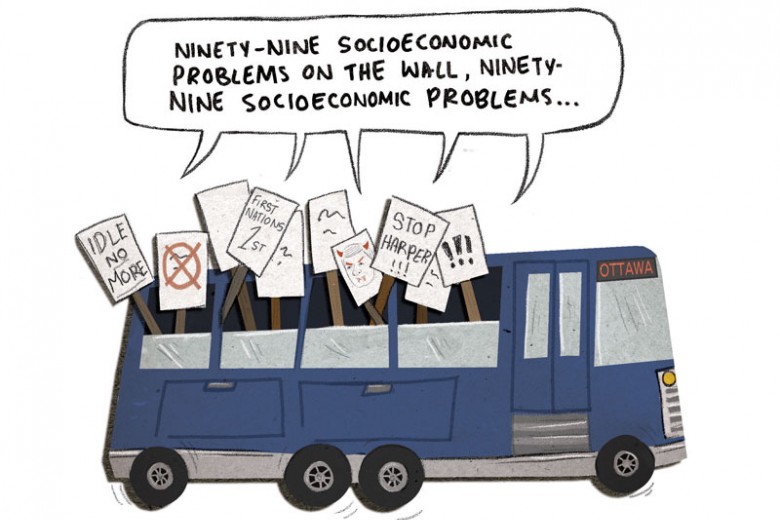
via Left Voice
Every year, in our November/December issue, Briarpatch publishes a special Labour Issue. While labour journalism has been scrubbed from the pages of corporate media and replaced with business reporting, our Labour Issue publishes unapologetically pro-worker and anti-capitalist stories about work and the labour movement that can't be found elsewhere.
This year, the COVID-19 pandemic has emerged as the biggest workplace issue of our lifetime. Many employers are getting rich off the pandemic, subordinating workers' health and safety to their drive for profit – but at the same time, we've seen a proliferation of militant and creative responses from workers and unions. So instead of our regular Labour Issue, we're publishing a special Labour in the Pandemic Issue, which will examine how workers and the labour movement are being affected by and responding to COVID-19.
Pitches for this special issue are due June 29, 2020.
What we're looking for
We are looking for investigative journalism, narrative reporting, feature articles, short op-eds, interviews, roundtables, profiles, comics, book reviews, and photo essays rooted in anti-capitalist, anti-colonial, feminist struggle. Please keep in mind that Briarpatch works on a months-long production cycle, which means that breaking news stories aren't well-suited to being published in the magazine.
Below is a partial list of suggestions, and we invite submissions beyond the themes listed here.
- Why unions matter during the pandemic; lessons from labour movement history
- Militant and creative labour tactics: direct action, strikes, exposing bad bosses, digital union organizing drives, and mutual aid between workers
- How losses in membership will affect the labour movement in the short and long term
- Labour and the body; occupational health and safety; disability and work
- Zero-work; anti-work; anarcho-labour; shortening the work week
- Stories from industries in flux: food and agricultural workers, nurses and health care workers, cleaners, teachers, postal workers, transit workers, airline workers, gig workers and app-based workers, etc.
- Migrant workers and undocumented workers' organizing
- Rent strikes and labour-tenant solidarity
- Care work; gendered work
- Working from home; white-collar vs. blue-collar labour
- Investigations into union-busting, the business lobby, corporate practices, deregulation, and the corporatization of non-profits
- Government responses to the pandemic: interventions into the economy and supply chains, austerity, nationalization, regulation
- International workers’ solidarity
- Working-class art and culture
How to pitch
Your pitch should include what ground your contribution will cover, an estimated word count, and your relevant experience or background in writing about the issue. Please send pitches to pitch[at]briarpatchmagazine.com by June 29, 2020. If you have not written for Briarpatch before, please provide a brief writing sample.
Before pitching, take a look at some of our back issues to see what we have recently covered. Please review our submission guidelines and a guide to pitching Briarpatch to improve your pitch.
We’re hoping to work with more writers of colour, especially Black and Indigenous writers. If you’re a writer of colour who wants more support in crafting a pitch or developing an angle for your story, you can email saima[at]briarpatchmagazine.com before June 15, 2020.
If your pitch is accepted, first drafts are due around August 10, 2020, with an intensive collaborative editing process lasting until the second week of September. If your story is still developing, you should be prepared to revise your draft to include updated information during edits. We reserve the right to edit your work (with your active involvement), and cannot guarantee publication.
We aim to reply to every pitch – including those we reject. However, because of time constraints, this isn’t always possible. If you don’t hear back from us within three weeks following the pitch deadline for the issue that you submitted to, please assume that we won’t be accepting your pitch. Feel free to pitch us again, though.
Our contributor rates are as follows:
$100 – Profiles, short essays, book reviews, and parting shots (generally 1,500 words or less)
$200 – Feature stories (generally 2,000-2,500 words) and photo essays
$300 – Research-based articles and investigative reporting (generally 2,500-3,000 words)





_copy_780_520_90_s_c1.jpg)
